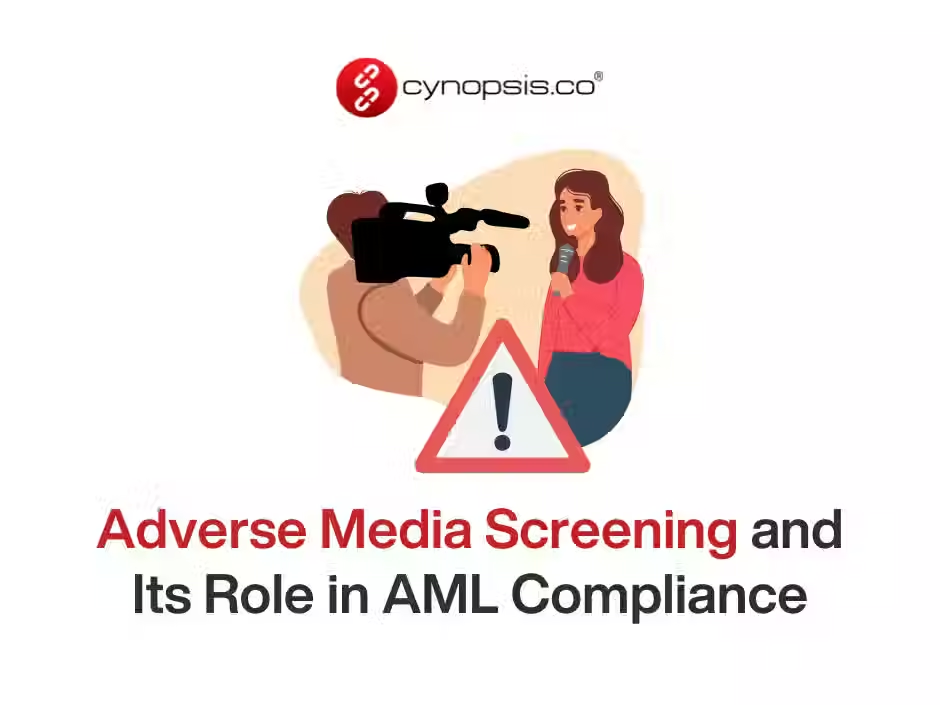A summary on Money Laundering/Terrorist Financing risks arising from COVID-19 and how we can help?
- Cynopsis Solutions

- May 7, 2020
- 3 min read
Updated: Jun 12, 2025

The COVID-19 pandemic has led to unprecedented global challenges, human suffering and economic disruption. Individuals are placed under “lockdown” (or other movement restricted measures), and businesses that are classified as “non-essential” services are forced to shut their physical stores overnight. As a result, many are turning to online systems to enable remote work.
This has also led to an increase in COVID-19-related crimes, including fraud, cybercrime, misdirection or exploitation of government funds or international financial assistance, which is creating new sources of proceeds for illicit actors. This paper comes in handy as the Financial Action Task Force (FATF) identifies challenges, good practices and policy responses to new money laundering and terrorist financing threats and vulnerabilities arising from the COVID-19 crisis.
Insights from FATF
In summary, FATF outlined in their key findings, the potential Money Laundering/Terrorist Financing (ML/TF) risks emerging from the aforementioned threats and vulnerabilities could be:
Criminals finding ways to bypass Customer Due Diligence (CDD) measures by exploiting temporary challenges in internal controls caused by remote working situations, in order to conceal and launder funds
Increased misuse of online financial services and virtual assets to move and conceal illicit funds
Exploiting economic stimulus measures and insolvency schemes as a mean for natural and legal persons to conceal and launder illicit proceeds
As individuals move money out of the banking system due to financial instability, this may lead to increased use of the unregulated financial sector, creating additional opportunities for criminals to launder illicit funds
Misuse and misappropriation of domestic and international financial aid and emergency funding by avoiding standard procurement procedures, resulting in increased corruption and consequent ML risks
Criminals and terrorists exploiting COVID-19 and the associated economic downturn to move into new cash-intensive and high-liquidity lines of business in developing countries, both for the laundering of proceeds as well as to fund their operations, as well as fraudulently claiming to be charities to raise funds online
Use of Digital Onboarding and Simplified Due Diligence
With people around the world facing confinement or strict social distancing measures, in-person banking and access to other financial services are difficult, and unnecessarily exposes people to the risk of infection. The use of digital/contactless payments and digital onboarding reduce the risk of spreading the virus. As such, the use of Financial Technology (Fintech) provides significant opportunities to manage some of the issues presented by COVID-19. In line with the FATF Standards, the FATF encourages the use of technology, including Fintech, Regtech and Suptech to the fullest extent possible. The FATF recently released Guidance on Digital ID, which highlights the benefits of trustworthy digital identity for improving the security, privacy and convenience of identifying people remotely for both onboarding and conducting transactions while also mitigating ML/TF risks. The FATF also calls on countries to explore using digital identity, as appropriate, to aid financial transactions while managing ML/TF risks during this crisis.
When financial institutions or other businesses identify lower ML/TF risks, the FATF Standards allow them to take simplified due diligence measures, which may help them adapt to the current situation. The FATF encourages countries and financial service providers to explore the appropriate use of simplified measures to facilitate the delivery of government benefits in response to the pandemic.
How Cynopsis can help?
Amidst this COVID-19 pandemic, Cynopsis Solutions can help firms globally to better mitigate ML/TF risks with our globally trusted flagship products - Ares (Digital Onboarding), Artemis (e-KYC) and Athena (Transaction Monitoring). With our end-to-end solutions in place, we are well-positioned to help our global clients stay ahead of the regulatory curve while effortlessly complying to the ever-importance regulatory requirements.
Click here to read the full detailed paper published by FATF.
About Cynopsis Solutions
Cynopsis Solutions was established in Singapore in 2014 and offers Regulatory Technology (Reg Tech) solutions designed to automate KYC processes. It has operations in Singapore, UK, Taiwan and Vietnam. Cynopsis Solutions is a winner of MAS FinTech Awards 2018 and has been recognized as one of the REGTECH100 – an annual list of 100 of the world’s most innovative RegTech companies as determined by RegTech Analyst, a RegTech intelligence platform.
Our end-to-end solution is designed according to the global FATF recommendations, applicable in 180 jurisdictions and is already helping more than 1,600 clients in the Banking, Financial Services, Professional Services and Gaming sectors globally to achieve better regulatory outcomes, improve efficiency and reduce cost.
Cynopsis.co | Twitter | LinkedIn | Facebook | Instagram


